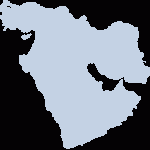Friday
Jun252010
Middle East Inside Line: Coalition Changes in Israel?; Netanyahu's War for Legitimacy; Israel Warns Lebanon
 Friday, June 25, 2010 at 8:40
Friday, June 25, 2010 at 8:40  Lieberman-Netanyahu War?: Tension is increasing between Israeli Foreign Minister Avigdor Lieberman and Prime Minister Benjamin Netanyahu. The latter needs the opposition, "centrist" party Kadima in the coalition, butKadima's leader Tzipi Livni wants the Foreign Ministry.
Lieberman-Netanyahu War?: Tension is increasing between Israeli Foreign Minister Avigdor Lieberman and Prime Minister Benjamin Netanyahu. The latter needs the opposition, "centrist" party Kadima in the coalition, butKadima's leader Tzipi Livni wants the Foreign Ministry.Lieberman doesn't seem to be too receptive. On Tuesday, he told reporters that Kadima could join the coalition as long as Kadima members agreed to support a land and population swap as a solution to the Israeli-Palestinian conflict. He continued:
This coalition will not change. We are willing to consider a shift in the coalition only if the entire coalition, including Kadima, supports the concept of a populated land swap rather than the concept of land for peace.
Israel’s Political/Military Alternative to Turkey: Romania?
Gaza Latest: Is Egypt Going to Make a Stand Against Israel? (Yenidunya)
Lieberman has a second condition as well: Kadima will agree to the continuation of construction when the freeze in the West Bank ends in September.
What about Netanyahu? The pressure on his shoulders is increasing day by day.
Here is the latest sign: leaders of Netanyahu's coalition partner Labor have said that, unless Kadima joins the government soon, they may not continue in government. That in turn could start a war between Lieberman's Yisrael Beiteinu and Netanyahu's Likud, ending up with an early election.
On Thursday, Ha'aretz headlined, "Striking Shift: Complete Lift of Gaza Blockade". According to Israel's Channel Two television, Lieberman proposed to his Italian counterpart, Franco Frattini, that Frattini head a delegation of European diplomats to the Gaza Strip. Although this is a change of policy but a change of tactics, Lieberman might be willing to extend his hand to Netanyahu at this first stage with a "concession".
Netanyahu's War for Israel's "Attacked" Legitimacy: Haaretz learned late Tuesday that Arab and Muslim members of the United Nations, led by Malaysia, are working toward assembling an emergency UN session to discuss Israel's last month raid of a Gaza-bound flotilla.
This was enough for Netanyahu. On Wednesday, during a Knesset discussion on Israel's collapsing international status, Netanyahu warned that West Jerusalem's legitimacy is being attacked. He said:
They want to strip us of the natural right to defend ourselves. When we defend ourselves against rocket attack, we are accused of war crimes. We cannot board sea vessels when our soldiers are being attacked and fired upon, because that is a war crime.
They are essentially saying that the Jewish nation does not have the right to defend itself against the most brutal attacks and it doesn't have the right to prevent additional weapons from entering territories from which it is attacked.
Then he targeted the "source of trouble":
The Palestinian side promoted the Goldstone report, organized boycotts, and tried to prevent our entrance into the OECD. The Palestinian Authority has no intentions of engaging in direct talks with us.
I call on [PA President Mahmoud] Abbas, yet again, to enter direct talks with us, because there is no other way to solve the conflict between us without direct dialogue. How could we possibly live side by side if they can't even enter the same room as us?
Lastly, Netanyahu called on activists to go to Iran, not to Gaza:
I call on all human rights activists in the world - -- go to Tehran. That's where there is a human rights violation.
Israel Warns Lebanon: Respondingto Lebanon parliament speaker Nabih Berri's warning to his Government to start exploring offshore natural gas reserves, claiming that otherwise Israel would claim the resources, Israel's Infrastructure Minister Uzi Landau told Bloomberg that Israel would "not hesitate to use force and strength to protect not only the rule of law but the international maritime law".,
Lebanon's former Prime Minister and current member of parliament, Fouad Siniora, also urged the Lebanese government to take the issue of offshore gas reserves in the country's territorial waters seriously.
tagged  Avigdor Lieberman,
Avigdor Lieberman,  Benjamin Netanyahu,
Benjamin Netanyahu,  Bloomberg,
Bloomberg,  Channel Tw,
Channel Tw,  Channel Two (Israel),
Channel Two (Israel),  Egypt,
Egypt,  Fatah,
Fatah,  Fouad Siniora,
Fouad Siniora,  Franco Frattini,
Franco Frattini,  Gaza,
Gaza,  Goldstone Report,
Goldstone Report,  Ha'aretz,
Ha'aretz,  Hamas,
Hamas,  Hosni Mubarak,
Hosni Mubarak,  Iran,
Iran,  Israel,
Israel,  Italy,
Italy,  Kadima,
Kadima,  Knesset,
Knesset,  Labor Party of Israel,
Labor Party of Israel,  Lebanon,
Lebanon,  Likud,
Likud,  Mahmoud Abbas,
Mahmoud Abbas,  Malaysia,
Malaysia,  Mohammad Abdelwahab,
Mohammad Abdelwahab,  Nabih Berri,
Nabih Berri,  OECD,
OECD,  Palestine,
Palestine,  Palestinian Authority,
Palestinian Authority,  Suez Canal,
Suez Canal,  Tzipi Livni,
Tzipi Livni,  Uzi Landau,
Uzi Landau,  Yisrael Beiteinu in
Yisrael Beiteinu in  Middle East & Iran
Middle East & Iran
 Avigdor Lieberman,
Avigdor Lieberman,  Benjamin Netanyahu,
Benjamin Netanyahu,  Bloomberg,
Bloomberg,  Channel Tw,
Channel Tw,  Channel Two (Israel),
Channel Two (Israel),  Egypt,
Egypt,  Fatah,
Fatah,  Fouad Siniora,
Fouad Siniora,  Franco Frattini,
Franco Frattini,  Gaza,
Gaza,  Goldstone Report,
Goldstone Report,  Ha'aretz,
Ha'aretz,  Hamas,
Hamas,  Hosni Mubarak,
Hosni Mubarak,  Iran,
Iran,  Israel,
Israel,  Italy,
Italy,  Kadima,
Kadima,  Knesset,
Knesset,  Labor Party of Israel,
Labor Party of Israel,  Lebanon,
Lebanon,  Likud,
Likud,  Mahmoud Abbas,
Mahmoud Abbas,  Malaysia,
Malaysia,  Mohammad Abdelwahab,
Mohammad Abdelwahab,  Nabih Berri,
Nabih Berri,  OECD,
OECD,  Palestine,
Palestine,  Palestinian Authority,
Palestinian Authority,  Suez Canal,
Suez Canal,  Tzipi Livni,
Tzipi Livni,  Uzi Landau,
Uzi Landau,  Yisrael Beiteinu in
Yisrael Beiteinu in  Middle East & Iran
Middle East & Iran 


